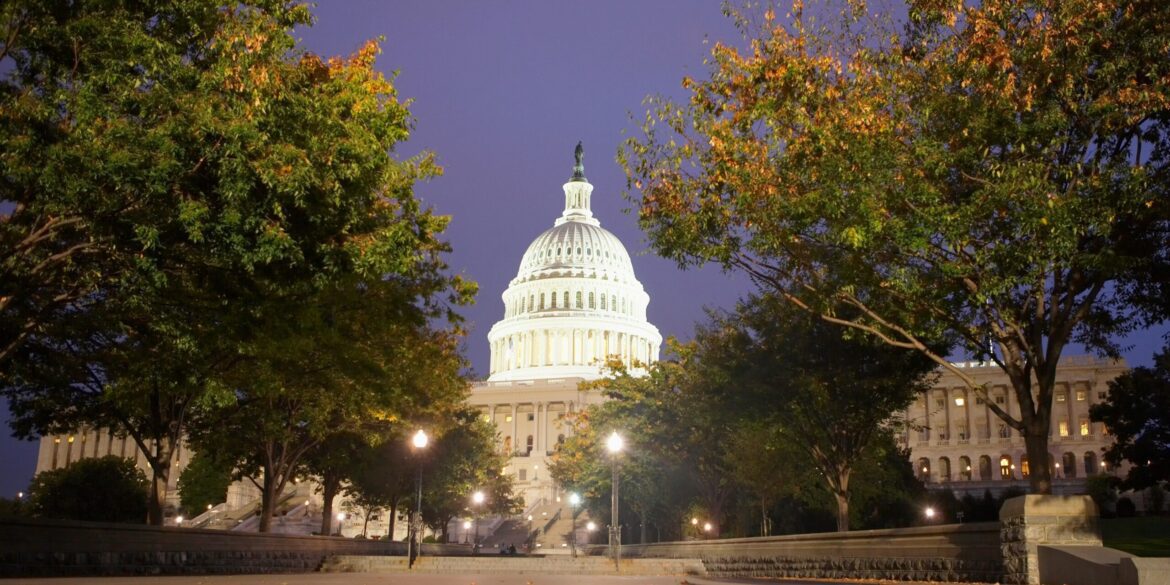In a historic move, the U.S. Senate today approved sweeping clean energy legislation designed to significantly reduce the country’s carbon emissions by 2035. This landmark bill, the result of extensive collaboration between Senate Democrats, Republicans, and environmental advocates, marks a major milestone in the U.S. government’s ongoing battle against climate change and its commitment to sustainable energy solutions.
The passage of this legislation has been widely celebrated by both political leaders and environmental groups, as it is considered one of the most ambitious steps taken by the U.S. government to address the climate crisis. The bill encompasses a broad range of provisions aimed at fostering a transition to clean energy. Key elements include substantial investments in renewable energy infrastructure, efforts to accelerate the adoption of electric vehicles (EVs), and incentives for businesses to adopt green technologies.
Among its key provisions, the bill allocates funds to enhance renewable energy sources, including wind and solar power, aiming to boost their role in the national energy grid. It also seeks to support the widespread adoption of electric vehicles by providing incentives for consumers and businesses to switch from traditional gasoline-powered vehicles to EVs. Furthermore, tax breaks for companies that invest in green technologies are a crucial part of the legislation, helping to create a more sustainable economic framework while advancing clean energy innovation.
President Joe Biden’s administration has strongly supported the bill, as it aligns with the administration’s broader environmental strategy to achieve net-zero carbon emissions by 2050. The bill is seen as a critical step toward achieving this ambitious goal and is expected to play a significant role in fulfilling the administration’s climate agenda.
“This is a transformative moment for America’s future,” said Senator Lisa Murkowski of Alaska, one of the bill’s key sponsors, during a press conference following the Senate vote. “By investing in clean energy now, we are ensuring a healthier and more resilient economy for generations to come. This legislation will not only address climate change but will also set the foundation for a robust, green energy economy that will create thousands of jobs across the nation.”
The bill also includes provisions to safeguard vulnerable communities from the increasing threat of climate-related disasters, a major concern as the effects of climate change become more evident. These measures focus on disaster preparedness and response, offering grants and resources to support local initiatives that help communities, particularly those most at risk, prepare for and recover from extreme weather events, such as hurricanes, wildfires, and flooding. Experts agree that these elements will be crucial in ensuring that marginalized communities are not left behind as the country transitions to a cleaner, more sustainable energy future.
As the bill moves to the House of Representatives for final approval, experts predict that it will not only have a significant impact on the environment but will also create millions of jobs in the burgeoning renewable energy sector. The clean energy sector is expected to see a surge in demand for workers, particularly in fields related to solar and wind energy, electric vehicle production, and green infrastructure development. This job creation is seen as a vital component of the bill, as it aims to stimulate the economy while tackling climate change head-on.
The legislation’s passage comes at a time when climate change is a central issue in U.S. politics and policy, with many experts and activists urging faster action to reduce greenhouse gas emissions. The Senate’s approval of this comprehensive clean energy bill represents a significant step toward addressing this global challenge, setting the stage for further action on climate change in the coming years.
As the bill now heads to the House of Representatives, many are hopeful that it will pass quickly and be signed into law by President Biden, marking a crucial victory for both the environment and the economy.

